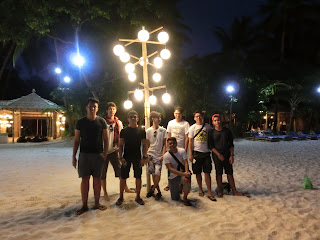sto nino - 3rd sunday of january

For three days they could not find Jesus. For three days they searched for Jesus. They searched for him among his relatives and among his peers where normally boys at that age would gravitate. But they could not find him there. They searched for him among their neighbors who were with them on this pilgrimage. They could not find him there either. And so they decided to go back to Jerusalem and searched for him in the possible places they thought they would find him. But he was not there. Then on the third day, they finally found him in the temple among the elders and the learned. Terribly exhausted, upset and probably even furious, Mary confronted the child and said, Child, why have you treated us like this? Look, your father and I have been searching for you in great anxiety.”





